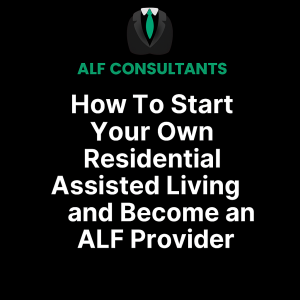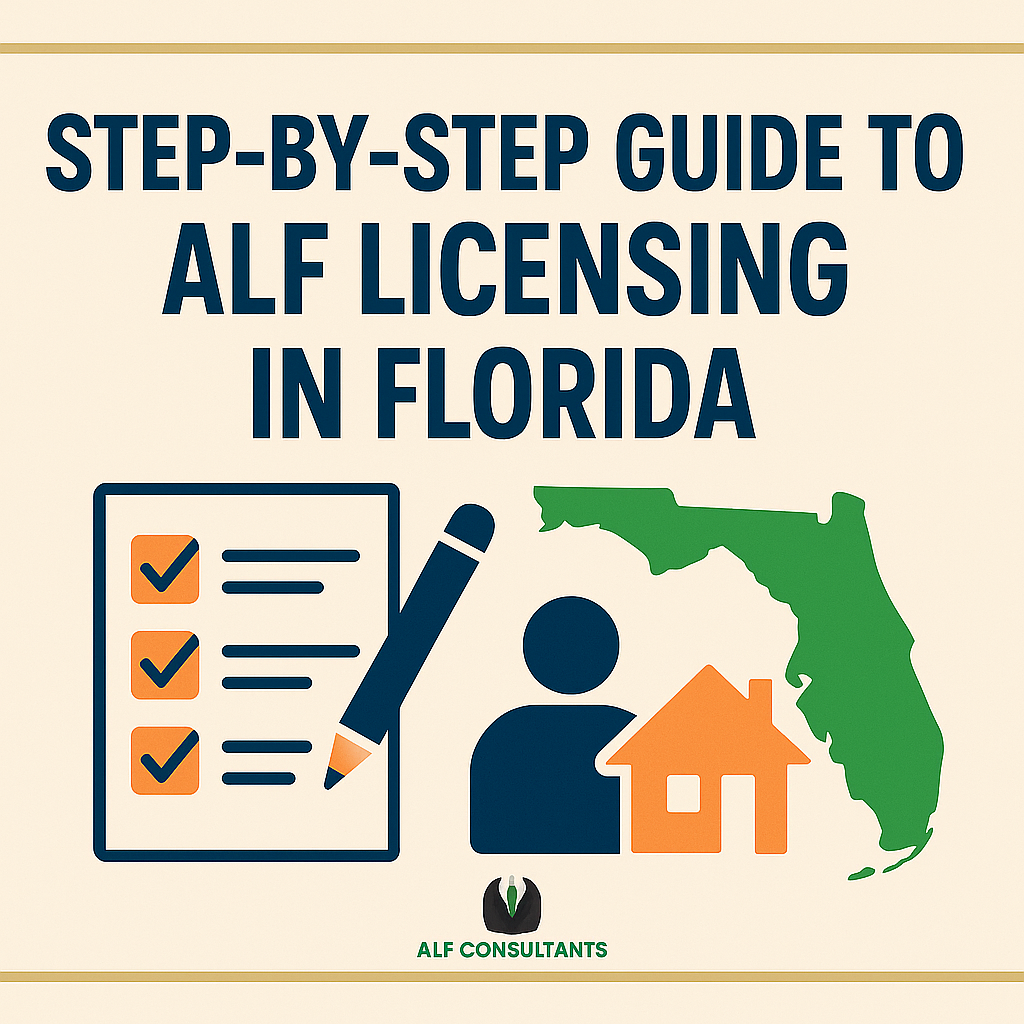
How To Start Your Own Residential Assisted Living and Become an ALF Provider
If you’re passionate about caring for seniors and want to make a difference in your community, starting your own residential assisted living facility (ALF) could be a rewarding business opportunity. But where do you begin? From licensing to operations, this guide will walk you through the essential steps to start your ALF and become a licensed provider.
What Is a Residential Assisted Living Facility?
A residential assisted living facility provides housing, meals, personal care, and support with daily activities (such as bathing, dressing, and medication reminders) in a home-like setting. Unlike large nursing homes, residential ALFs usually serve a smaller number of residents, offering a more personalized level of care.
Why Start an Assisted Living Facility?
-
High demand: The senior population is growing, and more families are seeking quality care options close to home.
-
Make a difference: You can create a warm, supportive environment that improves seniors’ quality of life.
-
Business opportunity: ALFs can generate steady income while fulfilling a critical need in your community.
How To Start Your Own Residential Assisted Living
1️⃣ Create a Business Plan
Your business plan should cover:
-
Location and facility size
-
Target market (e.g., seniors with specific care needs)
-
Services offered
-
Pricing structure
-
Staffing plan
-
Marketing strategy
This plan will guide you and help secure funding if needed.
2️⃣ Understand Your State’s Licensing Requirements
Every state has specific rules for assisted living facilities. These typically include:
-
Licensing for the facility
-
Background checks and qualifications for providers
-
Minimum staffing and training requirements
-
Building codes and safety standards
➡ Tip: Contact your state’s licensing agency or Department of Health to get a checklist of what’s needed.
3️⃣ Find a Suitable Property
You can:
-
Purchase or build a home designed for assisted living
-
Renovate an existing home to meet ALF standards
The property must comply with safety, accessibility, and zoning regulations.
4️⃣ Set Up Policies and Procedures
You’ll need:
-
Resident care plans
-
Medication assistance protocols
-
Emergency preparedness plans
-
Admission and discharge policies
These documents ensure smooth operations and compliance with regulations.
5️⃣ Hire and Train Staff
Your team is key to success. Depending on your state, you may need:
-
Caregivers / aides
-
A nurse (in some cases)
-
Administrator / manager
Ensure all staff complete the required training and background checks.
6️⃣ Apply for Your License
Once you’ve met the requirements:
-
Submit your application
-
Pass inspections (health, fire safety, etc.)
-
Pay any applicable fees
When approved, you’ll receive your ALF license!
7️⃣ Market Your ALF
Let families know about your services:
-
Build a professional website
-
List your facility on senior care directories
-
Network with hospitals, doctors, and senior centers
-
Use social media to share photos, testimonials, and updates
How To Become an ALF Provider
✅ Meet qualifications: Most states require ALF providers to complete specific training programs and have experience in senior care.
✅ Get certified: In some states, you’ll need to pass an administrator exam or certification process.
✅ Stay compliant: Keep up with continuing education requirements and renew your license as needed.
Starting your own residential assisted living facility takes planning, dedication, and heart. But with the right preparation, you can build a successful ALF that offers seniors a safe and caring home.
👉 Need help with licensing, compliance, or setting up your ALF? Contact ALF Consultants — we’re here to guide you every step of the way!

